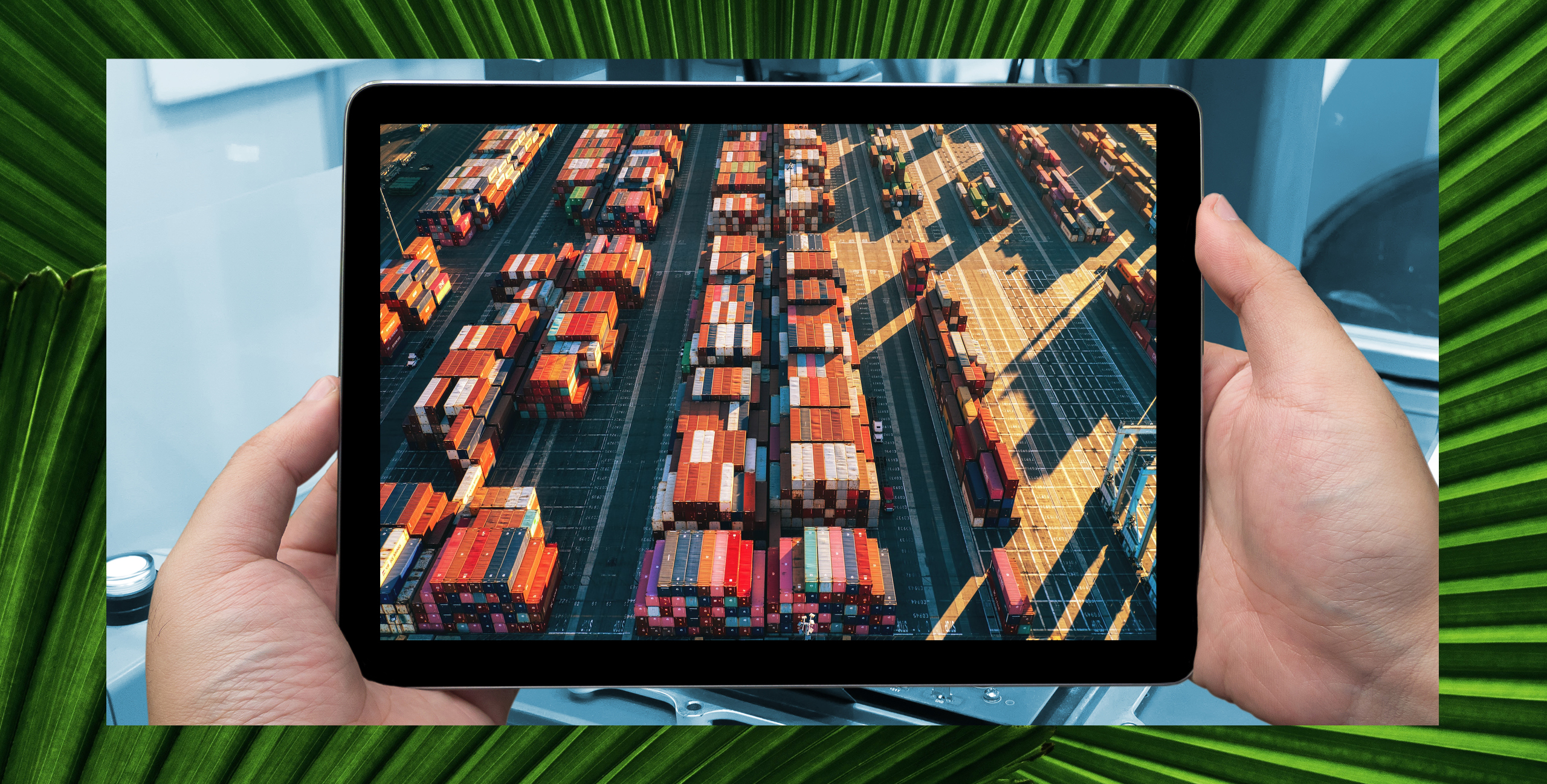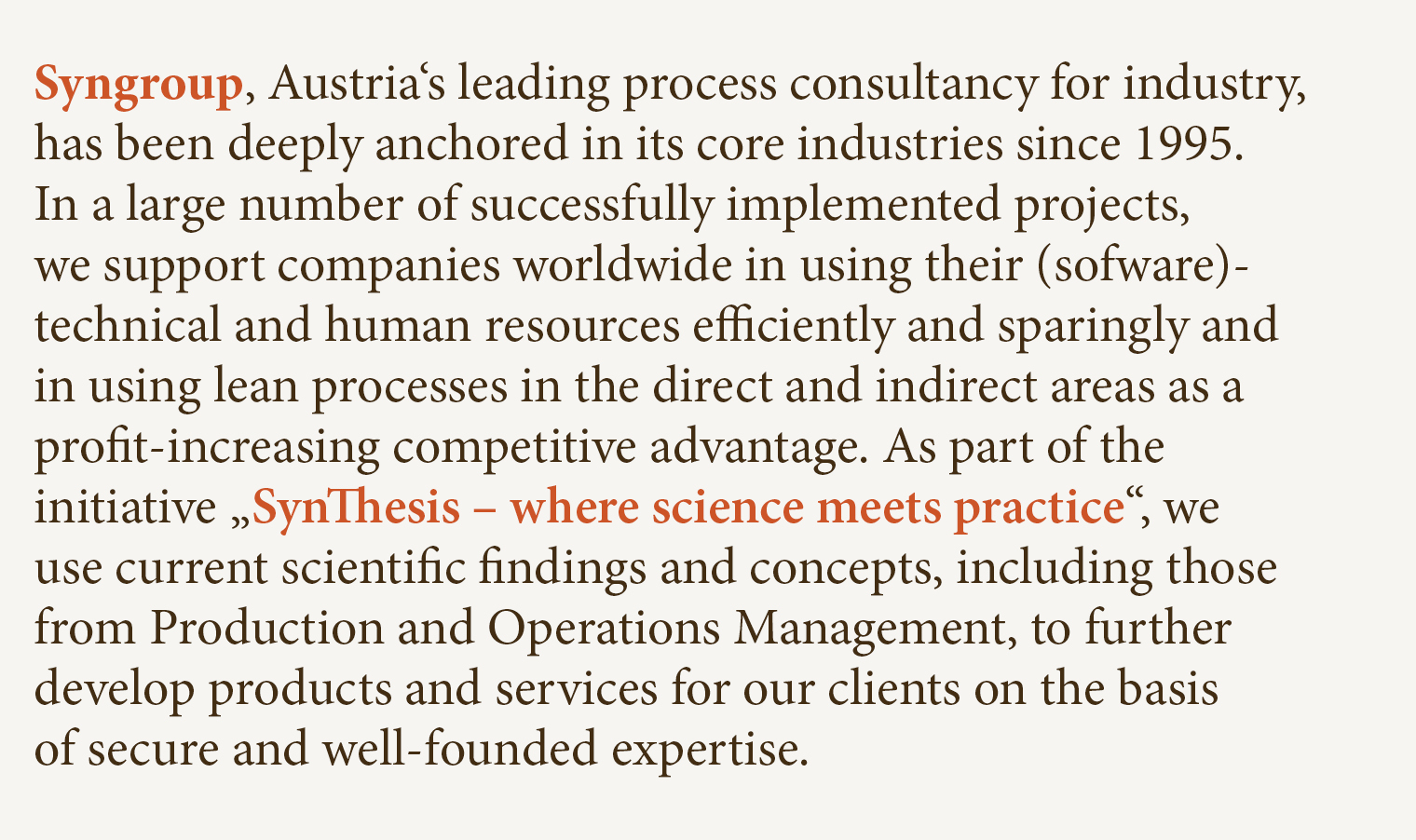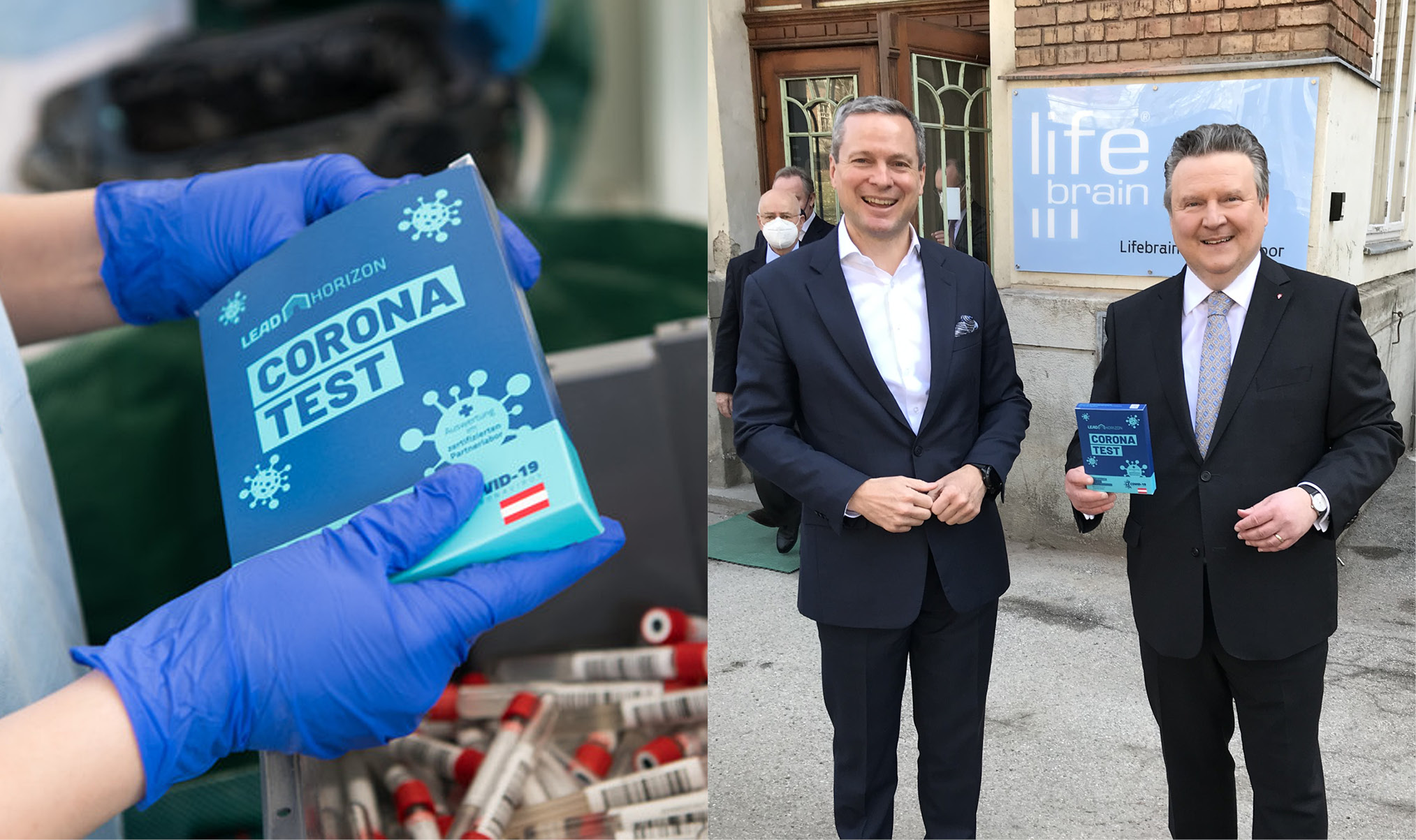
PRODUCTION & OPERATIONS MANAGEMENT
Part 2

In line with this year’s theme of the POMS International Conference, ”Operations Management & United Nation’s Sustainable Development Goals (UNSDGs)”, the main focus was on the role of operations management tools and concepts in changing our world and positively influencing one of the 17 Sustainable Development Goals of the United Nations.
In the second part of our conference review, our colleagues Birgit Daxböck, Philipp Miedler and Martin Leitner summarize the thematic highlights from the 21 “Themes & Tracks”, in which sustainability and crisis management issues were addressed and discussed in various facets by leading scholars in the respective disciplines.

Capacity Planning & Matching Supply and Demand
S&OP – SALES AND OPERATIONS PLANNING PROCESS
A presentation from Aalborg University focused on the Sales & Operations Planning process. A case study was used to investigate the extent to which S&OP can respond flexibly to different challenges. From our discussions with researchers, a contradictory picture emerged: on the one hand, there is hardly any interest in research to deal with the process. Research is focusing much more on sub-areas within S&OP. On the other hand, everyone involved notices that the topic is experiencing a renaissance in the industry and the need for consultancy has greatly increased. Research is focusing much more on sub-areas within S&OP (see Forecasting).

Warehouse & Inventory Management
Forecasting
Several conference contributions dealt with pattern recognition with the help of algorithmic evaluation methods. The most interesting finding was that it was proven that forecast accuracy has a disproportionately positive effect on the results of companies and therefore most efforts should be put into this topic.
Routing Problem / Logistics & Transportation Service Optimization
Distribution/Routing
The majority of the contributions in the segment “Logistics, Transport and Routing” dealt with the optimisation including simulations of hybrid methods of delivery / collection. This refers to concepts in which a slower, more inert, long-range transport unit works together with smaller, more flexible, short-range units. Example: A postal truck serves as a hub for filling and loading delivery drones to significantly increase the delivery rate in rural areas.

Adoption and Implementation of Disruptive Technologies, Blockchain and Operations Management
Digital Product Passport (DPP)
This field is also fuelled by EU regulations. Both research and companies are intensively dealing with how to obtain which data across the entire supply chain and how and where to process it and make it accessible to external stakeholders in order to meet new requirements (keyword circular economy).
In various presentations, strategies were also discussed to establish blockchain-based traceability as a solution for authenticity checks and certification on a large scale in the markets. This would make the required know-how of end customers (expertise) obsolete, but the costs would probably have to be borne by this same end customers
Preventive Maintenance / AGV-Production Orders
Digital Twin
This area was somewhat underrepresented. Worth mentioning are contributions on preventive maintenance models for line production based on machine learning algorithms and agent-based modelling of scheduling/coordination of AGVs (Automated Guided Vehicles) and machines including machine learning

Global Supply Chain & Operations Strategy
ESG
Although mandatory ESG reporting will not be introduced for SMEs, companies should not completely ignore the issue. Researchers identified two important reasons why it will be important for SMEs to launch ESG initiatives and implement evaluation processes. The most important reason is that SMEs are often part of a long value chain and stakeholders can put extreme pressure on them. The second reason is to remain attractive in the future – on the one hand for investors, for whom sustainability criteria are becoming an increasingly important priority, and on the other hand to be attractive to potential employees when it comes to the issue of a shortage of skilled labour. However, concrete recommendations for action for this target group (SMEs) are completely lacking.
Even among larger companies that are directly affected by ESG reporting requirements, there is still no uniform picture. Studies show that many companies do not yet feel well prepared and see both market-related and legal risks in connection with the new regulations.
+ + + + +
Paris and the POMS International Conference 2023 were worth the trip. With a lot of newly gained knowledge and valuable contacts to scientists in our luggage, we continue our journey into a sustainable and crisis-resistant future full of motivation.


philipp.miedler@syn-group.com



























